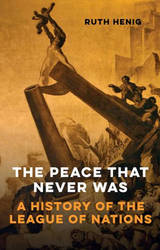
Eager to turn the congressional election of 1918 into a confirmation of his foreign policy, President Woodrow Wilson was criticized for abandoning the spirit of the popular slogan “Politics adjourned!”
His predecessor, William Howard Taft, found Wilson difficult to deal with and took issue with his version of the League of Nations, which Taft felt was inferior to the model proposed by the League to Enforce Peace. Rather than join the massive Republican opposition to the Treaty of Versailles, however, Taft instead supported Wilson’s controversial decision to travel to Paris as the head of the American peace delegation, and he defended the critical tenth article in the covenant, which detractors saw as a surrender of American sovereignty. He also counseled Wilson to insert a clause concerning the Monroe Doctrine that would pacify the Senate’s group of “reservationists,” whose votes were essential to approval of the treaty.
Volume VII in The Collected Works of William Howard Taft consists of the Taft Papers on League of Nations originally published in 1920. This is a collection ofTaft’s speeches, newspaper articles, and complementary documents that reflect his consistent support for a league of nations and, eventually, for the Covenant of the League of Nations emanating from the Paris Peace Conference.
Although the failure of the treaty and its League of Nations can probably be laid at the feet of an obstinate Wilson and a wily Henry Cabot Lodge, William Howard Taft can be credited with rising above partisanship to emerge as the League’s most consistent supporter.
As in the rest of the Collected Works, Taft Papers on League of Nations provides a window on the machinations surrounding some of the most significant decisions of the era.

The roots of conservative Christian skepticism of international politics run deep. In this original work Markku Ruotsila artfully unearths the historical and theological origins of evangelical Christian thought on modern-day international organizations and U.S. foreign policy, particularly in the fierce debates over the first truly international body—the League of Nations.
After describing the rise of the Social Gospel movement that played a vital, foundational role in the movement toward a League of Nations, The Origins of Christian Anti-Internationalism examines the arguments and tactics that the most influential confessional Christian congregations in the United States—dispensational millenialists, Calvinists, Lutherans, and, to a lesser extent, Methodists, Episcopalians, and Christian Restorationists—used to undermine domestic support for the proposed international body. Ruotsila recounts how these groups learned to co-opt less religious-minded politicians and organizations that were likewise opposed to the very concept of international multilateralism. In closely analyzing how the evangelical movement successfully harnessed political activism to sway U.S. foreign policy, he traces a direct path from the successful battle against the League to the fundamentalist-modernist clashes of the 1920s and the present-day debate over America's role in the world.
This exploration of why the United States ultimately rejected the League of Nations offers a lucid interpretation of the significant role that religion plays in U.S. policymaking both at home and abroad. Ruotsila's analysis will be of interest to scholars and practitioners of theology, religious studies, religion and politics, international relations, domestic policy, and U.S. and world history.

READERS
Browse our collection.
PUBLISHERS
See BiblioVault's publisher services.
STUDENT SERVICES
Files for college accessibility offices.
UChicago Accessibility Resources
home | accessibility | search | about | contact us
BiblioVault ® 2001 - 2024
The University of Chicago Press









